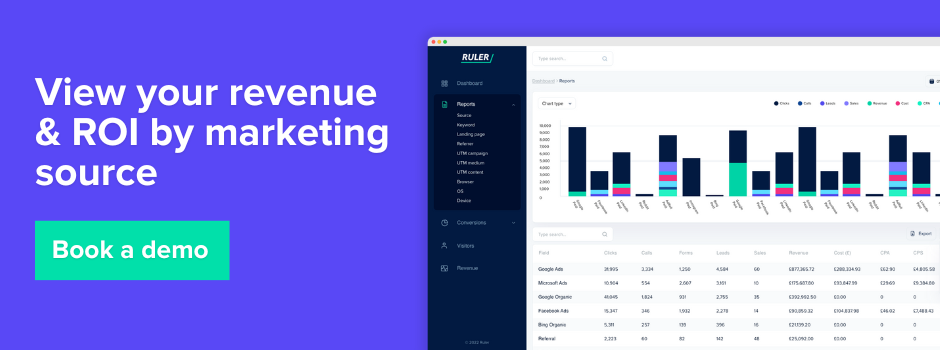Prove marketing effectiveness and demonstrate value to your executive team with these ROI tools.
Marketers are under intensifying pressure to display concrete results and prove ROI.
Stakeholders, company executives and clients all want proof that marketing brings valuable benefits and positively impacts the bottom line revenue.
But, with today’s consumers using more and more channels to communicate with companies, the process of getting an accurate, complete view of ROI has become a pressing challenge for marketers.
In fact, during a study, we found that just over half of marketers are confidently tracking marketing ROI.
Fortunately, there is a solution to this problem.
We’re talking about ROI tracking tools.
In this article, we’ll discuss:
💡 TL;DR
For a long time, marketers have focused on lead conversion metrics to measure marketing effectiveness. But just like clicks, leads don’t guarantee revenue impact.
ROI tools help marketers optimise their marketing spend by quantifying the impact of their investments.
For example, Ruler is an ROI tool that breaks down the data silo between marketing and sales. It identifies which marketing channels contribute the most revenue, not just clicks and conversions. Ruler attributes revenue data from your CRM to your marketing channels so you can see where you’re getting the most value.
It also models your ROI data and shows the point at which additional spending will no longer result in a significant increase in revenue, allowing you to make better decisions about where to allocate resources. See how other businesses use Ruler to improve ROI.
ROI tools are an absolute must for anyone who’s serious about tracking and monitoring marketing effectiveness.
Essentially, ROI tools allow you to determine which marketing channels and campaigns have the greatest impact on sales and revenue.
They allow you to view your digital ROI by tracking how your marketing directly impacts your sales and deals.
Without ROI tools, you’re unable to determine what channels contribute the most valuable results.
You run the risk of wasting your budget on campaigns that underperform, or worse, don’t deliver any value at all.
Tracking return on investment is important, no matter how big or small you are.
The end goal for almost any marketer is to increase revenue and bring in new customers.
And ROI is a key metric when determining if your marketing is helping to drive profits for your business.
Related: How to definitively prove your ROI
For a long time, however, marketers have focused on lead conversion metrics to measure success.
In fact, according to a survey by Globalspec, 57% of marketers use leads to measure the success of their marketing initiatives.
In all honesty, we can’t blame them.
We all like leads and getting conversions.
It’s in our marketing DNA.
Just like clicks, however, leads are not guaranteed revenue.
But by focusing on the revenue outcomes of your marketing, you can easily clarify which strategies have had the best impact on your business and optimise performance to drive revenue faster.
With so many tools to choose from, how do you decide what’s best?
It’s important that you recognise the unique needs of your business first before making any big investments or commitments. Below, we’ve listed a few factors that you can take into consideration to help make the right decision.
Now that you know what to look for let’s consider some tools to help track and measure your marketing ROI.
Becoming a revenue focused marketer is easier than you think. With the right tools at your disposal, you can streamline your marketing and sales processes to calculate your marketing ROI more accurately.
To find out if your marketing is contributing revenue, you need a solution that can capture all interactions throughout an individual customer journey and automatically attribute closed revenue to your influencing marketing channels, campaigns, keywords and more.
What you need is Ruler Analytics.
Using Ruler, you can easily identify the source of your leads, measure how they move through the pipeline, and track whether or not they convert into revenue. It also predicts the point at which additional investments will no longer result in a significant ROI and recommends how to allocate your budget more effectively.
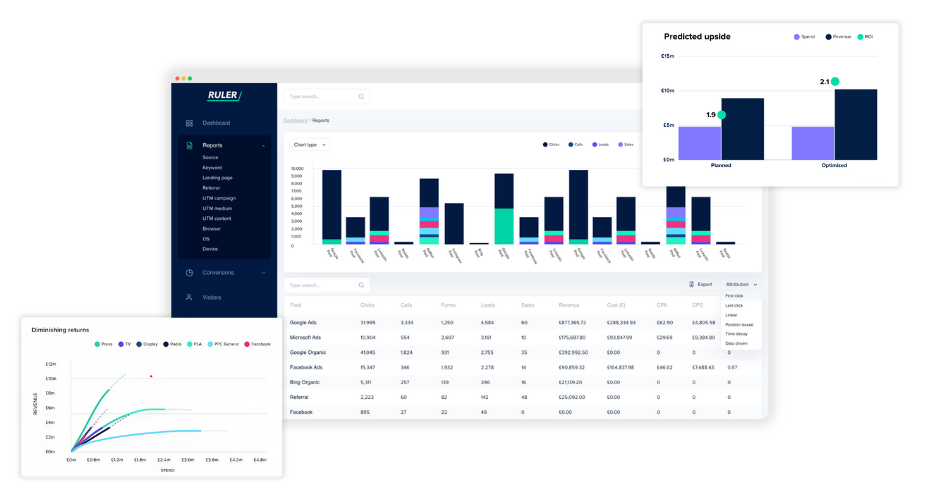
Our tool provides a list of features that can help you better understand your marketing ROI:
Pricing for Ruler starts at £199 a month and it has various plans to suit your specific needs. You can save 20% by paying annually and there are special rates for agency partners.
💡 Have any questions about Ruler’s revenue tracking?
We understand that you may have many questions after reading this. We’re here to help. Just book a demo and we’ll do our best to answer them all.
Book a demo and see how Ruler can improve ROI
Cyfe offers an all-in-one business dashboard solution using real-time data.
It integrates seamlessly with an extensive range of tools including, Salesforce, Google Ads, Xero, Quickbooks, and many more to give a complete view of your business performance.
The main benefits of Cyfe are its pre-built widgets and reporting abilities. You can easily build and customise dashboards to measure and monitor the ROI from each marketing campaign and channel.
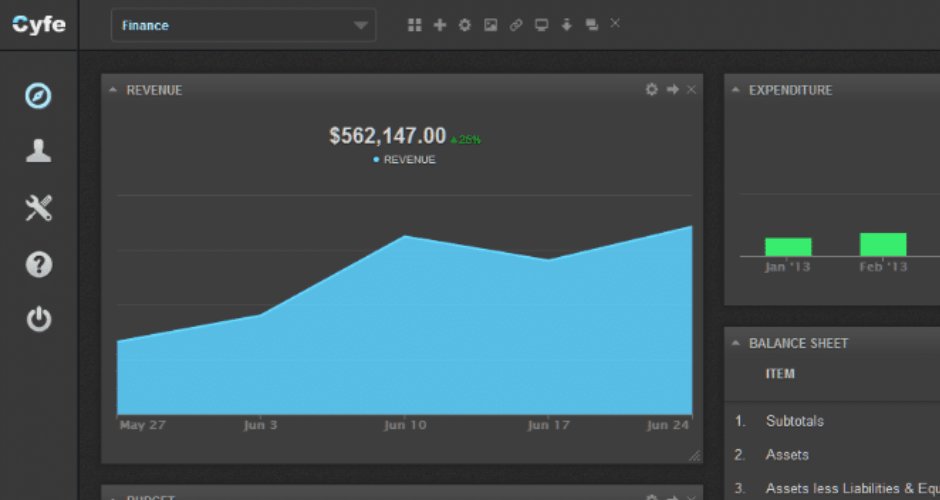
Cyfe offers four pricing plans, starting at $19 per month.
If you’re selling products or have a shopping cart on your website, Google Analytics is the best way to get started with revenue tracking.
It’s free to use and offers a wealth of information about the performance of your website. A little bit of code in your shopping cart, and you can track which of your marketing tactics are driving the most sales.
Related: How to track your marketing revenue in Google Analytics
But, what if you don’t sell any products but instead use your website to generate leads online or offline?
One option is to assign monetary values to your goals. In Google Analytics, you can allocate monetary values to your goals, which will appear in your acquisition report every time a goal is completed.
For example, let’s say you set up a goal that triggers whenever a user completes a form on your website, and you add £100 to the value. Every time a user fills in a form Analytics will attribute £100 to the marketing channel that influenced the conversion.
This might sound good in theory. But, as any reputable marketer knows, no conversion or lead is worth the same value. When it comes to tracking leads, it’s best to stay clear of goal values in Google Analytics.
You’re much better off using a tool like Ruler and feeding in revenue data automatically. Doing this will give you a more accurate view of your marketing ROI, allowing you to optimise for maximum results.
💡 Pro Tip
Linking Ruler Analytics to your Google Analytics can help you better understand how your marketing campaigns, keywords and ads are driving revenue for your company. Learn how Ruler benefits Google Analytics and how it can better support your reporting.
What are the benefits of integrating Ruler with Google Analytics
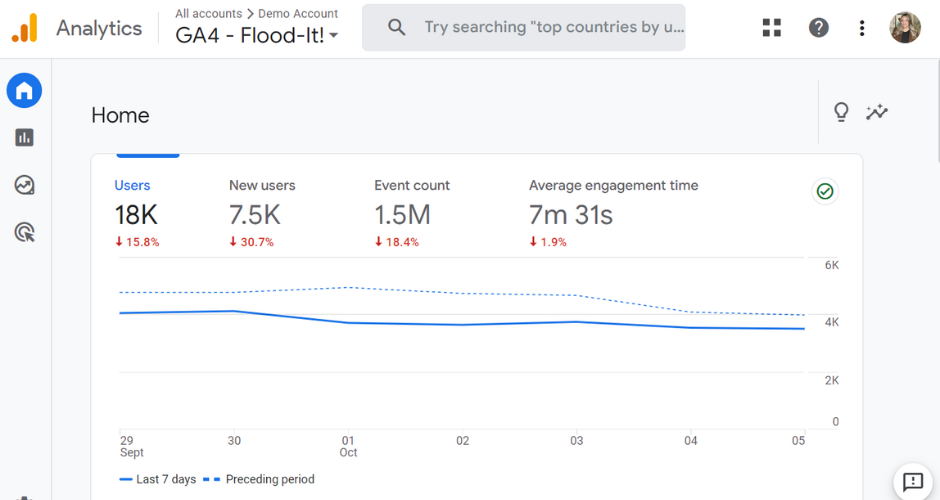
Google Analytics is free to use. There is a paid version called Google Analytics 360, which is designed for enterprise businesses
Kissmetrics is another tool that highlights your best-performing channels in terms of revenue.
With the Kissmetrics revenue reporting, you can highlight how much money you’ve made from marketing, where your revenue is coming from and what campaigns have the highest lifetime value or lowest churn.
Kissmetrics also shares some similarities to Google Analytics as it allows you to track metrics such as page views, bounce rate and time on site.
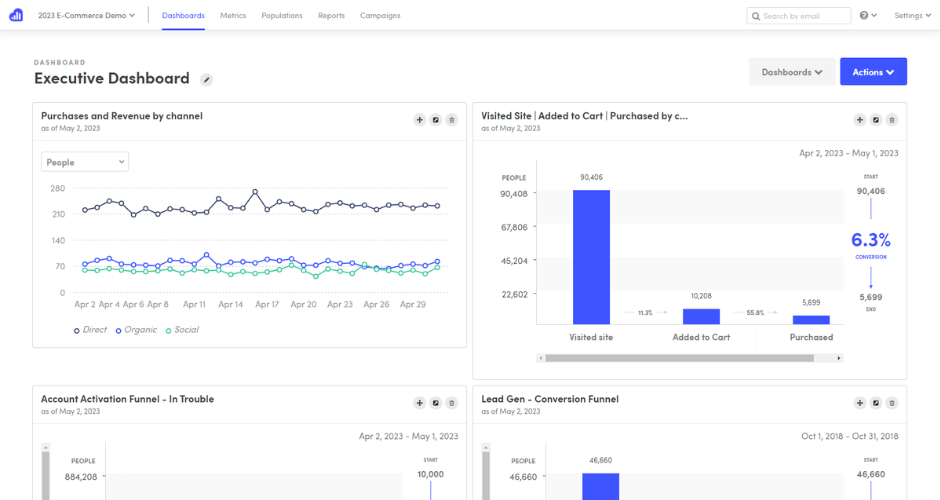
Kissmetrics offers three pricing plans: Growth ($500 per month), Power ($850 per month), and Enterprise (custom pricing).
Planful is a marketing tool that helps marketers track and monitor important goals, campaigns, budgets and return on investment. It works by connecting all the tools that marketers use to build plans, budgets and reports. Plannuh consolidates all your marketing data for a unified view of your marketing activities.
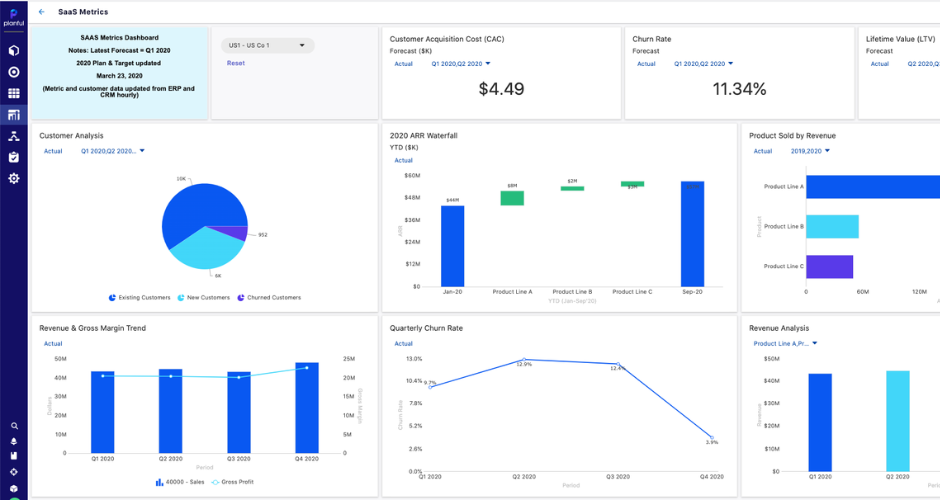
Planful does not publish its pricing on its website. Instead, they offer a customized pricing plan based on the customer’s specific needs, such as the number of users, the features they need, and the level of support they require.
If you’re not tracking ROI, you’re not effectively measuring your marketing performance.
Rather than guessing which tactics lead to revenue, use ROI tools and start evidencing the true impact of your marketing efforts.
With tools like Ruler, the process of tracking your ROI couldn’t be any easier.
Ruler takes out the legwork by seamlessly attributing revenue to your marketing across multiple touchpoints, allowing you to focus on building and growing your business.
Want more information about Ruler? Download the guide on how Ruler works or book a demo and see it in action for yourself
